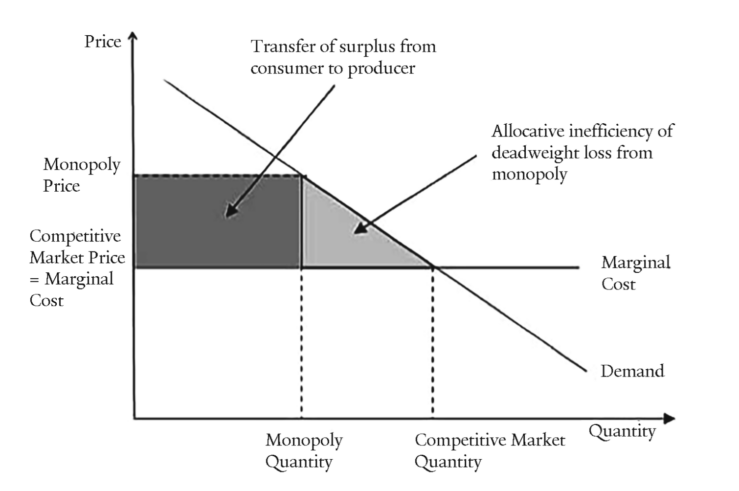Showing archive for: “Error Costs”
Chevron and Administrative Antitrust, Redux
[Wrapping up the first week of our FTC UMC Rulemaking symposium is a post from Truth on the Market’s own Justin (Gus) Hurwitz, director of law & economics programs at the International Center for Law & Economics and an assistant professor of law and co-director of the Space, Cyber, and Telecom Law program at the ... Chevron and Administrative Antitrust, Redux
Welcome to the TOTM Symposium on FTC UMC Rulemaking
There is widespread interest in the potential tools that the Biden administration’s Federal Trade Commission (FTC) may use to address a range of competition-related and competition-adjacent concerns. A focal point for this interest is the potential that the FTC may use its broad authority to regulate unfair methods of competition (UMC) under Section 5 of ... Welcome to the TOTM Symposium on FTC UMC Rulemaking
Attention Markets: They Know Them When they See Them
A raft of progressive scholars in recent years have argued that antitrust law remains blind to the emergence of so-called “attention markets,” in which firms compete by converting user attention into advertising revenue. This blindness, the scholars argue, has caused antitrust enforcers to clear harmful mergers in these industries. It certainly appears the argument is ... Attention Markets: They Know Them When they See Them
Final DMA: Now We Know Where We’re Going, but We Still Don’t Know Why
After years of debate and negotiations, European Lawmakers have agreed upon what will most likely be the final iteration of the Digital Markets Act (“DMA”), following the March 24 final round of “trilogue” talks. For the uninitiated, the DMA is one in a string of legislative proposals around the globe intended to “rein in” tech ... Final DMA: Now We Know Where We’re Going, but We Still Don’t Know Why
Toward a Dynamic Consumer Welfare Standard for Contemporary U.S. Antitrust Enforcement
For decades, consumer-welfare enhancement appeared to be a key enforcement goal of competition policy (antitrust, in the U.S. usage) in most jurisdictions: The U.S. Supreme Court famously proclaimed American antitrust law to be a “consumer welfare prescription” in Reiter v. Sonotone Corp. (1979). A study by the current adviser to the European Competition Commission’s chief ... Toward a Dynamic Consumer Welfare Standard for Contemporary U.S. Antitrust Enforcement
10 Things the American Innovation and Choice Online Act Gets Wrong
The Senate Judiciary Committee is set to debate S. 2992, the American Innovation and Choice Online Act (or AICOA) during a markup session Thursday. If passed into law, the bill would force online platforms to treat rivals’ services as they would their own, while ensuring their platforms interoperate seamlessly. The bill marks the culmination of ... 10 Things the American Innovation and Choice Online Act Gets Wrong
FTC Statement of Regulatory Priorities: Storm Clouds Are Looming
The Federal Trade Commission (FTC) appears committed—at least, for the moment—to a path of regulatory overreach. The commission’s Dec. 10 Statement of Regulatory Priorities (SRP) offers, in addition to a periodic review of existing rules and the status of proposed rules in the pipeline, a sneak preview of new “unfair methods of competition” (UMC) and ... FTC Statement of Regulatory Priorities: Storm Clouds Are Looming
Consumer Welfare-Based Antitrust Enforcement is the Superior Means to Deal with Large Digital-Platform Competition Issues
There has been a rapid proliferation of proposals in recent years to closely regulate competition among large digital platforms. The European Union’s Digital Markets Act (DMA, which will become effective in 2023) imposes a variety of data-use, interoperability, and non-self-preferencing obligations on digital “gatekeeper” firms. A host of other regulatory schemes are being considered in ... Consumer Welfare-Based Antitrust Enforcement is the Superior Means to Deal with Large Digital-Platform Competition Issues
Broad-Based FTC Data-Privacy and Security Rulemaking Would Flunk a Cost-Benefit Test
A debate has broken out among the four sitting members of the Federal Trade Commission (FTC) in connection with the recently submitted FTC Report to Congress on Privacy and Security. Chair Lina Khan argues that the commission “must explore using its rulemaking tools to codify baseline protections,” while Commissioner Rebecca Kelly Slaughter has urged the ... Broad-Based FTC Data-Privacy and Security Rulemaking Would Flunk a Cost-Benefit Test
Technology Mergers and the Market for Corporate Control
In recent years, a growing chorus of voices has argued that existing merger rules fail to apprehend competitively significant mergers, either because they fall below existing merger-filing thresholds or because they affect innovation in ways that are purportedly ignored. These fears are particularly acute in the pharmaceutical and tech industries, where several high-profile academic articles ... Technology Mergers and the Market for Corporate Control
FTC Antitrust Enforcement and the Rule of Law
The language of the federal antitrust laws is extremely general. Over more than a century, the federal courts have applied common-law techniques to construe this general language to provide guidance to the private sector as to what does or does not run afoul of the law. The interpretive process has been fraught with some uncertainty, ... FTC Antitrust Enforcement and the Rule of Law
Congress Should Not Grant the FTC Untrammeled Authority to Obtain Monetary Relief
The U.S. House this week passed H.R. 2668, the Consumer Protection and Recovery Act (CPRA), which authorizes the Federal Trade Commission (FTC) to seek monetary relief in federal courts for injunctions brought under Section 13(b) of the Federal Trade Commission Act. Potential relief under the CPRA is comprehensive. It includes “restitution for losses, rescission or ... Congress Should Not Grant the FTC Untrammeled Authority to Obtain Monetary Relief












